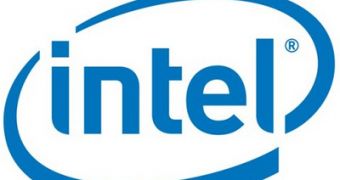Over the past few months, Intel seems to have done quite well for itself, with its introduction of the 32nm processor, its Pine Trail platform and the enhanced video and multimedia capabilities of its latest integrated graphics. Still, it seems that not all things are going as well as the Santa Clara chip maker might have hoped, as one of its plans to expand its market share, namely its deal with TSMC, doesn't seem to have lived up to initial expectations.
Around the same time last year, Intel and Taiwan Semiconductor Manufacturing Company revealed that they had formed a partnership aimed at delivering a new Atom system-on-chip for the mobile segment. This SoC would be Intel's way of attacking ARM's market share in mobile consumer electronics, such as handsets, mobile phones and other small devices. Unfortunately, for Intel and TSMC at least, the lack of customer demand seems to have prompted the two partners to discontinue, at least temporarily, the development of Atom SoCs.
Intel's Atom works well in laptops and its Pine Trail has seen a fast and widespread adoption in netbooks and nettops. Still, the CPU maker is more accustomed to making different products for such system designs as servers and PCs. When it comes to mobile chips and system-on-chip devices, however, the company would have to explore new areas of chip designs, areas that ARM has already mastered and already builds upon.
“Intel faces challenges with the SoC model that dominates consumer electronics,” Jim McGregor, the chief technology strategist at the research firm In-Stat, said. “They have to be able to spin custom designs quickly and tweak their manufacturing process for each device.”
ARM system-on-chip devices are generally licensed by companies, which then proceed to attaching or optimizing whatever feature they wish. Partnering with TSMC would have given such companies the ability to do the same to the Atom SoC. Unfortunately, mobile customers, at least for now, are not interested in experimenting with the new platform. Of course, Intel and TSMC haven't completely given up either, but their joint efforts have been, at least for the short term, put on hold.
“I think we had a lot of key learnings from the partnership so far,” Robert Crooke, Intel’s Atom chief, added in an interview. “We haven’t given up. These things never happen superfast.”

 14 DAY TRIAL //
14 DAY TRIAL //